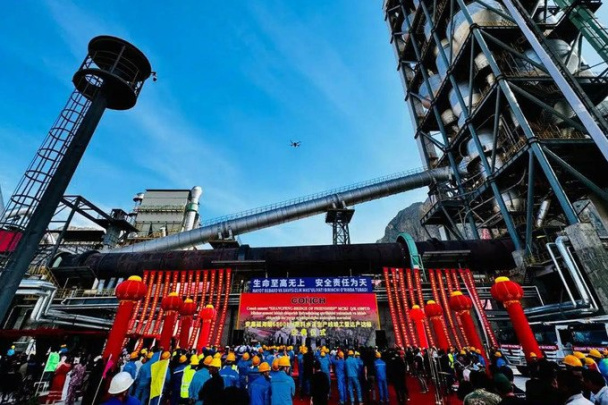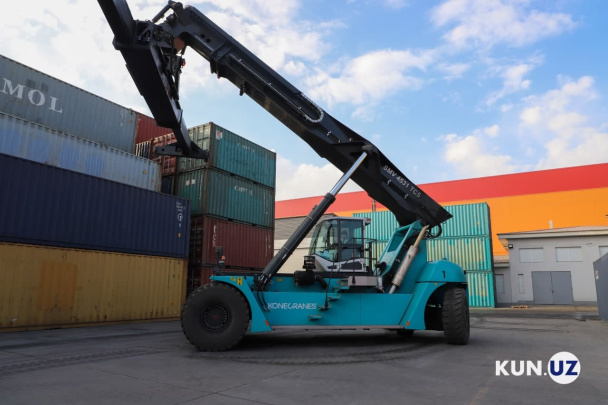Official data indicates that in 2023, sales of electric vehicles in Uzbekistan tripled. In order to discuss the latest trends and prices in the market, Kun.uz conducted an interview with EV importers.
So, what changes have occurred in the electric vehicle market in the last three years? What are the expectations for the price dynamics that have been decreasing over the past six months?
Such questions were answered by the head of the "Did Motors" dealership, the auto blogger Dilshod Abdullaev, the founder of "AJ Motors" dealership Jamshid Qosimov, the sales director Akmal Ziyoyev, and the head of "King Motors" dealership, the auto blogger Khurshid Mahamadov.
What have been the demand dynamics for electric vehicles recently?
Dilshod Abdullaev: It started off a bit slow, as people were hesitant. Not everywhere in our country has a strong electrical voltage of 220 volts. But now, demand has surged because of the petrol issue and many people are tired of queuing for gas conversion, so they are completely switching to electric vehicles. Those who travel long distances are opting for hybrids that run on both electricity and petrol.
Jamshid Qosimov: There's been significant growth in demand dynamics. The main reason is that competitive cars are beginning to enter the market in place of locally produced Chevrolet vehicles in Uzbekistan. As the problem with fuel – petrol and gas – becomes more challenging, the demand for electric vehicles rises. As this is an emerging industry, it will continue to grow.
Khurshid Mahamadov: The dynamics are always trending upwards because this is something new. Our electric vehicle market is still underdeveloped; compared to petrol vehicles, we haven't even reached 10 percent. Demand will continue to grow year over year.
What do you think the demand will be like in 2024?
Dilshod Abdullaev: Of course, I think it will increase because the whole world is moving in this direction. Even the most expensive sports cars which have set world records with engines are transitioning to electric vehicles. I reckon the number of EVs will sharply increase in Uzbekistan. It will also benefit the environment. People are certainly tired of filling up with petrol and gas.
Khurshid Mahamadov: The price of petrol is getting more expensive, and people are starting to switch to EVs after consulting with others who already have an electric car.
What are your expectations for price dynamics?
Akmal Ziyoyev: Before asking whether the prices will fall or remain the same, we should consider why the prices have dropped. In 2022, batteries accounted for 40% of the cost price of electric vehicles in China. In 2023, this percentage decreased to 25-30%. The price of batteries has decreased by 10-15%. Why did it become cheaper? The main component added to it – lithium carbonate – has become cheaper in the global market. While the price of lithium carbonate was approximately $69,000 in 2022, it dropped to $22,000 in 2023. As you can see, there is a significant difference. Naturally, as the cost of raw materials has decreased, so has the price of batteries, which in turn has led to a decrease in the prices of electric vehicles. This is the first factor we are aware of.
Secondly, if we take the example of China's BYD company, it significantly increased its production. Manufacturers know that increasing the number of products can reduce the cost price. As the volume of production has increased, prices have fallen further. If BYD produced 1.9 million electric vehicles in 2022, this number rose to 3 million in 2023.
This is a significant figure. BYD's current policy is to capture its share of the global market. How is this being achieved? Of course, by reducing the price. The BYD company produces nearly 100% of its spare parts, which allows it to compete in the global market in terms of pricing. Naturally, this situation is forcing other car manufacturers to consider BYD's pricing policy as well. They are also forced to reduce prices from their profit margin or in other ways. We are witnessing how BYD's pricing is not only affecting the domestic market but also impacting the European automotive industry.
Based on these factors, nobody can say for sure whether prices will fall or not. It depends on raw materials and production potential. If the price of raw materials in the global market rises, naturally, prices will increase, and if they fall, prices will decrease. These are the factors we are aware of, but of course, there are other factors as well. These are the conclusions we have drawn from our observations over the years.
Khurshid Mahamadov: Starting from the beginning, after COVID-19 in 2021, transportation was very expensive; logistics costs were high. Subsequently, there was an optimization. We had a VAT of 15% previously, which was then reduced to 12%. The exchange rate of the yuan also had an impact: whereas previously 1 dollar was equal to 6 yuan, now it's heading towards 7-8 yuan. Since we pay in dollars, we have more strength. Due to this, the prices are relatively cheaper. The competition within China itself is very fierce; they always go for dumping. They try to offer something cheaper and of better quality than the next. Tesla started this trend by suddenly dropping prices by 30%. This is still ongoing, prices are dropping. However, this will stop one day for sure. For example, the Lixiang company, instead of lowering its price this year, has increased it. The previous models have gone up by 5000 dollars. That means the prices can also rise; they can't always go down.
Dilshod Abdullaev: I think prices will fall again, and they may even start production here. By the end of the year, prices in China will drop. A car that was sold for 10 thousand dollars at the beginning of the year could go down to 6 thousand dollars by the end of the year. In my opinion, prices will continue to fall year by year.
How do you think the start of BYD's production in Uzbekistan will affect the prices of electric vehicles in the local market?
As a citizen born and living in this country, we are in favor of manufacturing cars under conditions that are convenient, affordable and do not burden our people. On the other hand, as entrepreneurs who have invested in this industry, it scares us a bit. It’s no secret that if you previously wanted to bring a Chevrolet Lacetti from Korea for yourself, you would run into difficulties at customs. If the competition is healthy and not monopolistic, we have nothing to fear. If China is the biggest manufacturer globally, producing nearly 500 different models of cars, and if BYD is among the most advanced, there are also emerging companies. Perhaps we will start bringing in their cars. We are not afraid if the competition is healthy; otherwise, our situation might become difficult.
Khurshid Mahamadov: It will not affect us at all. I don’t think there will be full localization anytime soon. Even if it is produced, it won't make an impact. They will try to keep the prices stable. One of their main advantages is the warranty. They are offering warranties for 5-6 years.
Interviewed by Madina Ochilova




